Please fill out the following information, and RRFC Admissions will contact you to discuss our program offerings:
Issue #84
by L. Swift and Jeff McQ

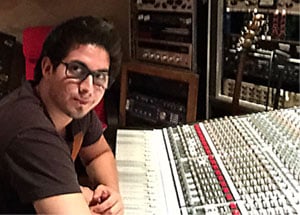
Eric Gonzalez
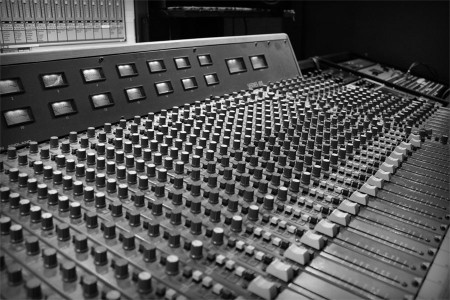
Console in DOB Sound Studios
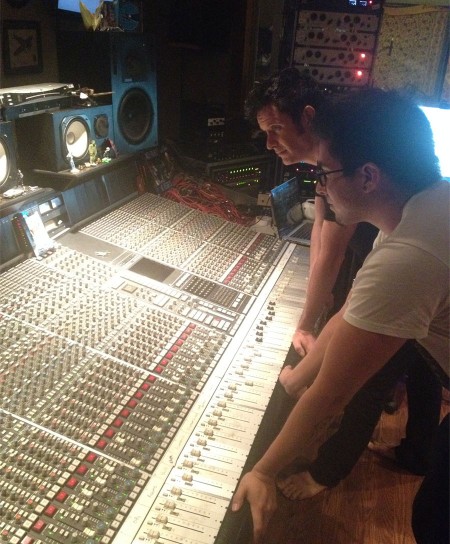
Eric Gonzalez with Warren Huart
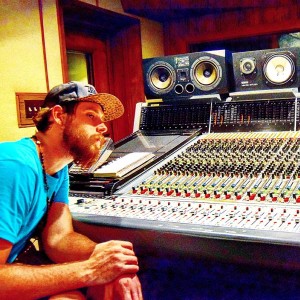
Alex Mitchek
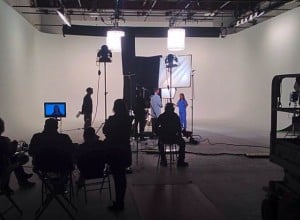 Film Connection grad Joe Paciotti recently did a shoot for Invincible Pictures at the Philadelphia Sound Stage where he worked in the art department assisting the Production Designer! Keep on working hard Joe! You’re doing it!
Film Connection grad Joe Paciotti recently did a shoot for Invincible Pictures at the Philadelphia Sound Stage where he worked in the art department assisting the Production Designer! Keep on working hard Joe! You’re doing it!
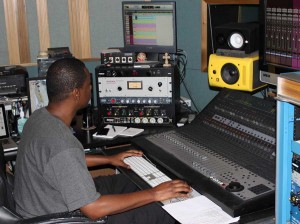
Sanfer Chaney
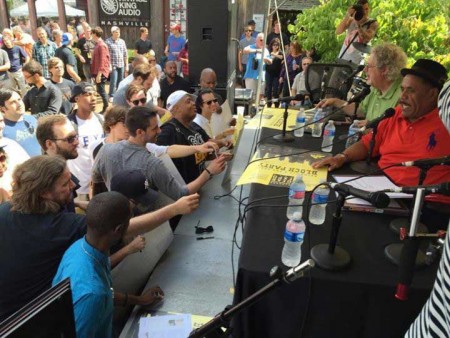
Dave Pensado & Herb Trawick at Pensado Vintage King Gear Expo 2014

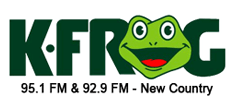 Radio Connection mentor Marshall Thomas is a man of many talents; besides being a lifelong radio broadcaster, he’s also ventured into acting, teaching, woodworking and even writing children’s books. Thanks to his passion for radio in general, and country music in particular, he’s spent many years behind the mic, observing the many changes that have taken place in radio over the years. Currently hosting a weekend slot at K-FROG (94.1 FM) in San Bernardino, CA, Marshall is also passionate about helping our broadcasting students find their footing in the landscape of modern radio broadcasting. In the following interview with RRFC, Marshall talks with us about how he got his start in radio, the changes he sees in the industry, and the new world of opportunities now available to up-and-coming broadcasters.
RRFC: Can you tell us a little about your story and background? How did you get to where you are today?
Marshall Thomas: It started when I was a kid. I literally knew when I was a small child that I was going to be in the music business somehow, some way. Right out of high school…I went to JC here in Los Angeles, a junior college. They had a small, little 10-watt transmitter on the campus. You could get the station throughout the campus and out into the parking lot, and that was about it. I majored in theater and radio. Disco was huge at the time. I started spinning records in clubs and working on my chops that way. One thing led to another and I got an internship at a rock-n-roll station here in Los Angeles…Within a year, lo and behold, they saw my potential, believed in me, and I started picking up air shows, mostly fill-ins, and then it went from there, doing weekends and full time.
Radio Connection mentor Marshall Thomas is a man of many talents; besides being a lifelong radio broadcaster, he’s also ventured into acting, teaching, woodworking and even writing children’s books. Thanks to his passion for radio in general, and country music in particular, he’s spent many years behind the mic, observing the many changes that have taken place in radio over the years. Currently hosting a weekend slot at K-FROG (94.1 FM) in San Bernardino, CA, Marshall is also passionate about helping our broadcasting students find their footing in the landscape of modern radio broadcasting. In the following interview with RRFC, Marshall talks with us about how he got his start in radio, the changes he sees in the industry, and the new world of opportunities now available to up-and-coming broadcasters.
RRFC: Can you tell us a little about your story and background? How did you get to where you are today?
Marshall Thomas: It started when I was a kid. I literally knew when I was a small child that I was going to be in the music business somehow, some way. Right out of high school…I went to JC here in Los Angeles, a junior college. They had a small, little 10-watt transmitter on the campus. You could get the station throughout the campus and out into the parking lot, and that was about it. I majored in theater and radio. Disco was huge at the time. I started spinning records in clubs and working on my chops that way. One thing led to another and I got an internship at a rock-n-roll station here in Los Angeles…Within a year, lo and behold, they saw my potential, believed in me, and I started picking up air shows, mostly fill-ins, and then it went from there, doing weekends and full time.
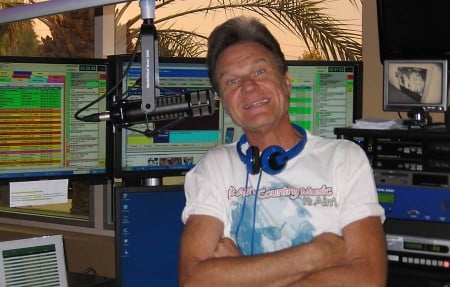
Radio Connection mentor Marshall Thomas
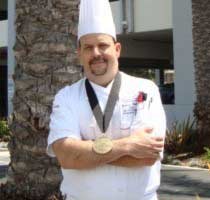 “I believe highly in apprenticeship & mentorship as I am a result of this teaching environment. I understand a strong theoretical education works for a lot of students, but hands on experience and doing these tasks teaches hands on involvement that is hard to get. It is harder to build these bonds that are taught cooking together. This style builds confidence in the apprentice to achieve the goals to raise them above cook status into Sous Chef over a period of time through hard and smart working techniques that will empower the students to be performers, not guided by someone else’s success, but creating their own.”
— Robert W. Phillips CEC, CCA, CFSP, CC, Director of Culinary & Nutrition, MCH Deanco
“I believe highly in apprenticeship & mentorship as I am a result of this teaching environment. I understand a strong theoretical education works for a lot of students, but hands on experience and doing these tasks teaches hands on involvement that is hard to get. It is harder to build these bonds that are taught cooking together. This style builds confidence in the apprentice to achieve the goals to raise them above cook status into Sous Chef over a period of time through hard and smart working techniques that will empower the students to be performers, not guided by someone else’s success, but creating their own.”
— Robert W. Phillips CEC, CCA, CFSP, CC, Director of Culinary & Nutrition, MCH Deanco
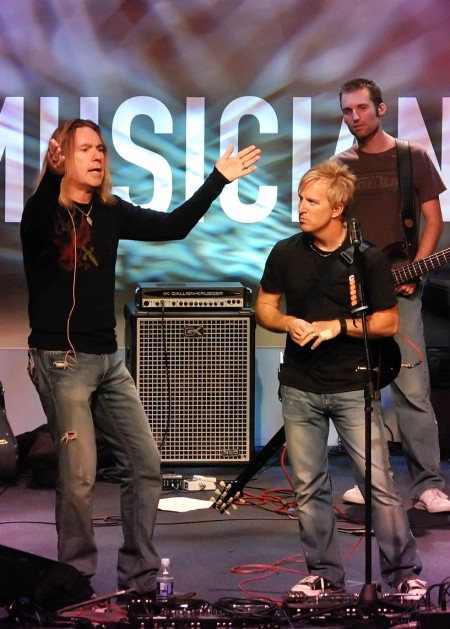
Tom Jackson
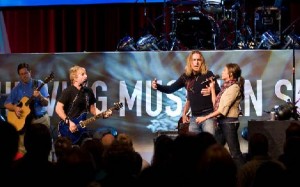 Included are two full days of fun and enlightening instruction and a chance to play for music industry pros at the evening Showcase!
We’re happy to offer this intensive 2-Day Live Performance Bootcamp for only $299. Seating is limited so act quickly!
**Hotel arrangements, lodging, food and travel are not included.
Included are two full days of fun and enlightening instruction and a chance to play for music industry pros at the evening Showcase!
We’re happy to offer this intensive 2-Day Live Performance Bootcamp for only $299. Seating is limited so act quickly!
**Hotel arrangements, lodging, food and travel are not included.
Follow the link here, then click on the “workshops” tab and scroll down to “Tom Jackson Bootcamp.”



RRFC is education upgraded for the 21st century.
Get the latest career advice, insider production tips, and more!
Please fill out the following information, and RRFC Admissions will contact you to discuss our program offerings:
Stay in the Loop: Subscribe for RRFC news & updates!
© 2024 Recording Radio Film Connection & CASA Schools. All Rights Reserved.


